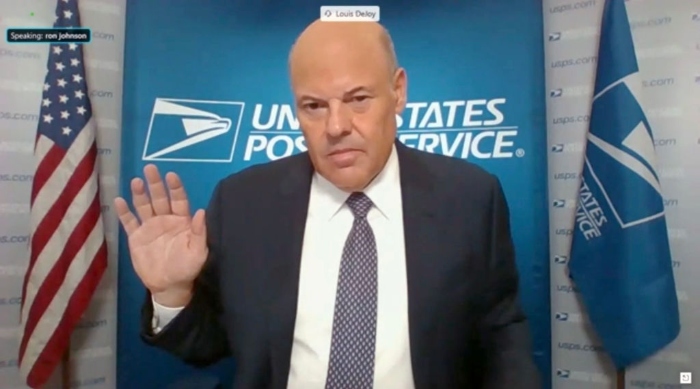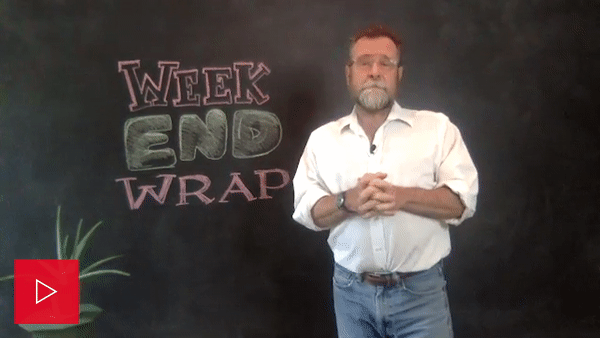
21 August 20
It's Live on the HomePage Now:
Reader Supported News
WHEN WE SAY DONATIONS ARE DOWN, YOU CAN BELIEVE THEY ARE - Pulling in enough donations on a monthly basis to cover RSN’s basic operating costs is one difficult job … in normal times. These times are anything but normal. We’re down a good 20% from last month at this time. While that may not seem like much, to a community based organization it’s the difference between keeping services turned off and keeping them on. Slow down for a moment and do what you can to keep RSN doing this. / Marc Ash, Founder Reader Supported News
Sure, I'll make a donation!
FOCUS: Steve Bannon's Indictment and Arrest Should Worry Trump and His Associates

Barbara McQuade, NBC News
McQuade writes: "The arrest of Steve Bannon on fraud charges should alarm a number of people close to Donald Trump, including the president himself."
Bannon can control how history remembers him with the choices he makes now.
 he arrest of Steve Bannon on fraud charges should alarm a number of people close to Donald Trump, including the president himself.
he arrest of Steve Bannon on fraud charges should alarm a number of people close to Donald Trump, including the president himself.
Bannon was arrested Thursday on charges of conspiracy to commit wire fraud and money laundering along with three other men in what authorities said was a scheme to defraud donors funding Trump's proposed wall on the border with Mexico. Each of the two counts in the indictment carries a maximum sentence of 20 years. While sentencing guidelines would likely yield a lower sentence than that, a conviction based on the total amount of $25 million alleged to have been raised by the conspiracy could realistically lead prosecutors to ask for 11 to 14 years.
Most defense lawyers confronting such a serious situation will ask their clients whether they have any information they can trade in exchange for leniency. Defendants who can provide concrete assistance in the investigations of others can reduce their sentences substantially, although a defendant generally must also admit to his own crimes and plead guilty.
As the CEO of Trump's 2016 campaign and later a White House strategist, Bannon is well positioned to have information about a number of possible criminal targets. One of them is Erik Prince, the billionaire founder of the defense contractor Blackwater, who is the brother of Education Secretary Betsy DeVos. Prince appears to have given conflicting statements to the House Intelligence Committee and special counsel Robert Mueller about a meeting he had in the Seychelles islands in January 2017 with a Russian financier tied to President Vladimir Putin. Conflicting narratives suggest that at least one account is false. Intentionally lying about material matters in either proceeding is a crime.
During his House testimony, Prince said that he met by chance in the Seychelles with Kirill Dmitriev, the chief executive of Russia's sovereign wealth fund; that they met only once; and that he did not attend the meeting as a representative of Trump. But Mueller found just the opposite — that their meeting was arranged in advance, that they met twice and that Prince was acting on behalf of the administration for the purpose of forging a new alliance with Russia. According to Mueller's report, another witness, George Nader, sent a text message to Dmitriev saying Prince was "designated by Steve" Bannon to meet him. Prince told Mueller that he sent text messages to Bannon to report on the results of the meeting.
Both Bannon and Prince were the subjects of referrals for criminal prosecution by the Senate Intelligence Committee, which recently completed an investigation into Russian election interference. With the new charges as an incentive, Bannon could provide insight into whether Prince committed perjury in his testimony before the House or the Senate, potentially leading to criminal charges against Prince. Perjury is a five-year felony.
Other people whom Bannon's cooperation could implicate include Donald Trump Jr. and Jared Kushner, who also were the subjects of criminal referrals by the Senate Intelligence Committee in 2019. Trump Jr. testified before the committee in May 2019 that he had had only limited knowledge about a proposed Trump Tower project in Russia, but Michael Cohen, Trump's personal lawyer at the time, testified that he had briefed Trump Jr. on the topic about 10 times. In addition, reports indicate that deputy campaign chairman Rick Gates contradicted the account Kushner and Trump Jr. gave about their meeting with a Russian lawyer in June 2016. Trump Jr. was reported to have been seeking incriminating information about Hillary Clinton.
As a part of Trump's inner circle, Bannon could even have information to share about the president. Mueller's report did not attempt to charge Trump with a crime, but it did document 10 episodes of what could constitute obstruction of justice. Mueller thought it was inappropriate to charge a sitting president or even to say a president had committed a crime.
But once Trump leaves office, he will no longer enjoy such protection. The five-year statute of limitations will not run out on Trump's 2017 conduct until 2022. If Trump were to leave office in January 2021, Justice Department lawyers in the new administration would have plenty of time to file charges. As a White House adviser during the early days of the Trump administration, Bannon was well positioned to observe facts that could be used in an obstruction of justice prosecution of Trump.
Of course, Bannon's value as a witness could be rendered moot by a presidential pardon. Rather than decide whether to go to trial and risk conviction or to plead guilty and testify against others, Bannon would no doubt prefer clemency from Trump to avoid either of those bad choices. But Bannon surely knows that a pardon now would bring a heavy political cost in the run-up to the election.
Bannon joins a long list of Trump associates who have been charged with crimes: Gates, 2016 campaign chairman Paul Manafort, former national security adviser Michael Flynn, campaign adviser George Papadopoulos, Cohen and adviser Roger Stone. (Trump commuted Stone's sentence just before he began serving it.)
For someone who campaigned on a promise to "drain the swamp," Trump has shown uncommonly poor judgment in choosing associates. A pardon of Bannon would only amplify that message and expose Trump to additional allegations of a cover-up. A more likely scenario is the one that played out with Stone — wait on a pardon until absolutely necessary, at least until after the election. With Bannon unlikely to face trial until after November, Trump can wait and issue a pardon when he no longer faces judgment from voters.
But Bannon holds some cards here, too. If he has incriminating information about Trump and associates, he can choose to share it regardless of whether Trump grants a pardon. Bannon can control how history remembers him with the choices he makes now.
READ MORE
Contribute to RSN
Update My Monthly Donation




















 he
he 
